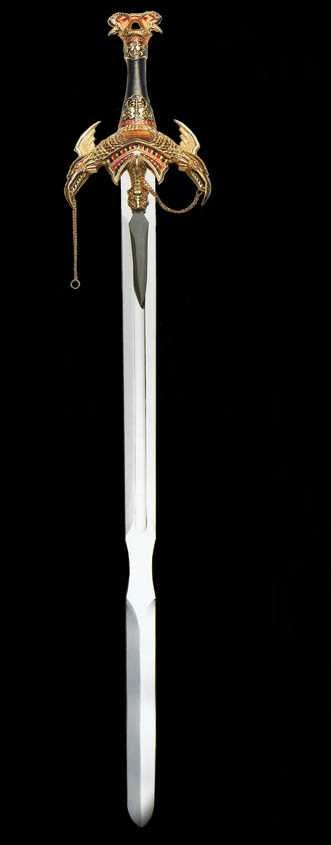



...From broad neck to buttocks so bulky and thick,
And his loins and his legs so long and so great,
Half a giant on earth I hold him to be,
But believe him no less than the largest of men... (Norton, 205)
The above lines add more to the description of the Green Knight’s
boldness and strength. Being a giant and the largest of all men,
the Knight is once again described as superior to all the rest
of the knights in the dining hall: "And formed with every feature in
fair accord was he. Great wonder grew in hall at his hue most strange
to see" (Norton, 205). The previous line explains how the knights at
the court are amazed and shocked by the Green Knight’s monstrous
appearance. These lines are important in that they bring out
the arrogant character the Green Knight possesses. The author wants
us to feel the force of a real knight, one that everyone else in the
hall lacks.

...With trim hose and tight, the same tint of green,
His great calves were girt, and gold spurs under
He bore on silk bands that embellished his heels,
And footgear well-fashioned, for riding most fit.
And all his vesture verily was verdant green... (Norton, 205)
The reason why the author chose this color, the way I see it,
is because green represents nature. As we will see in later
episodes of the poem, the knight’s greenish color implies that
no matter how strong a man Gawain is, nature can always overpower
him. This is exactly the attitude the Green Knight has had since the
beginning of this passage when the he looks down on all the knights and considers
them to be corrupt. Therefore, this further implies that the
Green Knight is probably an immortal spirit sent from some magical
land to teach the people a lesson that they are not the best.
Knowing that Gawain is described as the best of all knights,
Gawain becomes the first, or the only deserving one, to be tested
for real chivalry.
